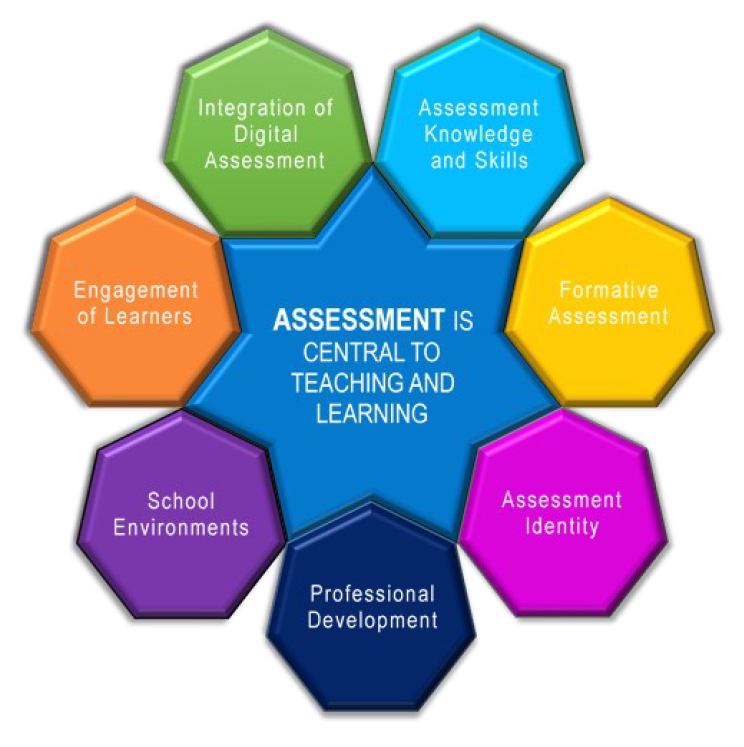
Seven elements of teachers’ assessment literacy
Research 7 Mar 2022 6 minute readAn assessment literacy framework developed by ACER for the International Baccalaureate Organization will support teachers to understand their own impact on learners’ achievement, help them to identify learner needs and possible interventions they can use, and provide constructive feedback to learners and their parents.
One of the key conditions teachers need to create in order to support high quality learning is for assessment, teaching and learning in their classrooms to work collectively. Teachers must therefore possess a high level of assessment literacy to properly fulfil their role in facilitating learning and empowering learners.
To support teachers to improve their assessment literacy, the International Baccalaureate (IB) Organization engaged ACER to develop an assessment literacy and design competency framework. The framework is intended to support not just teachers but also school leaders, subject coordinators, IB programme leaders, and those who design and implement professional learning opportunities.
Following a literature review, scan of IB documents and stakeholder consultation, ACER developed a draft framework of key assessment competencies required by teachers, and approaches to gaining them. It identifies seven elements of assessment literacy, and provides a description, methodology and possible resources for further exploration of each.
It is not the intention that every teacher should be competent in every element. Instead, schools should aim to have a spread of skills and knowledge on as many elements as possible. This will help ensure that there is advice and support available for teachers to draw on.
Figure 1: Structure of the teachers’ assessment literacy and design competence framework
Assessment knowledge and skills
Teachers need to have the skills and knowledge to evaluate the extent to which assessment items can generate reliable and valid data. Teachers need to be proficient in several fundamental areas of assessments, such as developing and grading rubrics for open response tasks, using assessment data to monitor learner progress and to identify ways to enhance learning, and to utilise results from assessments to inform their own teaching practices.
Formative assessment
It is important that teachers are aware of the philosophies that underscore formative assessments and the tools appropriate to meet that objective. The expectations are that teachers can design and implement a range of assessment activities to suit the diversity of learner needs and preferences. This includes not only getting their learners to demonstrate skills and knowledge in curricula areas, but also 21st century skills such as digital literacy, collaboration, creativity and critical thinking.
Assessment identity
Teachers’ feelings, emotions, values and beliefs about assessment derive from their own personal experiences. Having positive beliefs and attitudes about the role that assessment plays in improving learning, as well as confidence and belief in their assessment skills, are an important part of their identity. In addition, they need to be aware of the legislative requirements and the cultural expectations for assessment in the contexts in which they teach, and align their assessment practices accordingly.
Professional development
Continuous access to good quality professional learning opportunities will ensure that teachers employ best practice approaches to assessment. Teachers often have different learning goals and preferred approaches for their professional learning, so it is important to consider how support can be tailored to suit their areas of confidence, development priorities and preferences.
School leaders can greatly enhance teachers’ professional development by encouraging the development of communities of practice that enable teachers to consult with their colleagues, and try out innovative and experimental approaches to assessment.
School environment
In supportive environments, school leaders create enabling structures for assessment literacy among teachers and clearly articulate the importance of using data to inform improvements.
One way to empower teachers to optimise data use in schools is by using data teams. Comprised of teachers and school leaders, these teams can help analyse assessment data, design and implement interventions based on evidence, and support colleagues to utilise data in informing teaching practices.
Engagement of learners
In addition to developing their own assessment literacy, teachers should also support learners to gain assessment literacy. This can be achieved by ensuring learners understand the learning goals and success criteria, and engage in self- and peer-assessment.
Using questioning, probing and other instructional practices can enhance the effectiveness of assessment by helping learners to identify their strengths and areas for improvement. Furthermore, peer and self-assessment are important for students to become independent learners; teachers facilitate this by modelling how to make judgements about the quality of work.
Integration of digital assessment
Digital assessments can improve efficiency in marking, moderating, and storing information, enabling teachers to use their resources better. They provide opportunities to assess complex knowledge and reasoning that may not be possible to assess through traditional, paper-based methods.
Teachers should undergo training in digital assessment design and undertake digital assessments themselves to fully understand the demands they may place on their own learners. Furthermore, professional development needs to constantly evolve as digital technologies evolve.
Read the full report:
Girgla, A., Good, L., Krstic, S., McGinley, B., Richardson, S., Sniedze-Gregory, S. and Star, J. (2021) Developing a teachers’ assessment literacy and design competence framework. International Baccalaureate Organization.
